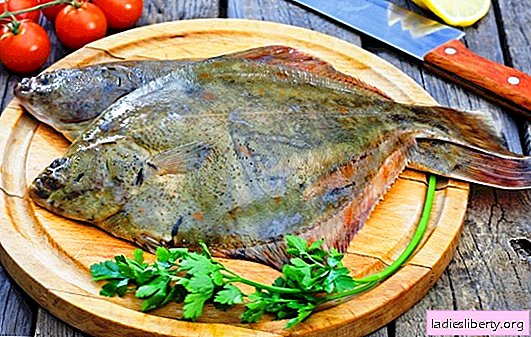
An increase in appetite can be quite normal, due to a long meal. This is a requirement of the body. A signal about the need to eat something and make up for the lack of energy. Often there is an unmotivated feeling of hunger, even if very little time has passed since the last meal. There are many options for why this happens: from the characteristics of a particular person's biorhythms to pathological processes in the nervous system, endocrine system, digestive tract, and mental disorders.
Physiological causes of increased appetite in the evening
Often the factor in the development of increased appetite is not associated with a particular disease. What can cause such discomfort in the dark:
- Violation of circadian rhythms. Normally, the biological clock is set by the coordinated work of the entire endocrine system. The "conductor" is the hypothalamus, to a lesser extent the pituitary gland. They are responsible for monitoring the operation of the entire system and establishing a stable hormonal background. With prolonged lack of sleep, overwork, for example, at work, stressful situations, unstable rest, the body does not know how to function. Therefore, such a patient besides a constant feeling of hunger also experiences constant drowsiness, lethargy. The appetite is unstable, can fade and heat up, and so on in a circle.
- Hormonal imbalance also occurs in women. Everything: from pregnancy to the next phase of the menstrual cycle can provoke alimentary disorders. In particular, they are manifested in a feeling of insatiable hunger. This is a temporary phenomenon, but with systematic occurrence, medical attention is required.
- Stressful situations can also cause a desire to eat. In the evening, hormonal imbalance occurs. In normal condition, the body prepares to go to bed. And in a person under stress, neither cortisol, nor norepinephrine, nor catecholamines change their concentration. Hence the strong desire to eat. Jamming stress is not considered a disease. But it can be part of a neurosis or bulimia. The line is thin, therefore it is recommended that the consultation of a therapist. Moreover, if such a condition is constantly present and does not depend on a stressful situation.
- Age. In adolescence, an increase in appetite in the evening is much more common. This is a manifestation of puberty, its normal feature.
- In old age, an increase in appetite also accompanies hormonal disorders. In this case, the transition to menopause. Condition monitoring is required until hormonal adjustment is complete.
- Also, a state of severe hunger develops with a revision of the approach to nutrition. This is normal and goes away by itself after some time. The main thing is not to give up.
Pathological causes
Diseases that provoke increased appetite in the evening are even greater. If we talk about the most common:
- Diabetes. The feeling of hunger is associated with surges in the concentration of glucose in the blood. Due to the biological rhythm, the process reaches its greatest instability by 5 p.m. or so, even in healthy people.
- Vitamin deficiency, hypovitaminosis. Not enough vitamins. Paradoxically, it most often develops as a result of malnutrition.
- Bulimia Eating disorder. Requires consultation of a psychotherapist and specific treatment. It is difficult to independently detect the disease.
- Brain tumors. The vast majority of cases are benign and not growing for many years. Lack of development, small sizes make detection impossible without special diagnostics.
- Pathology of the digestive tract.
- Hyperthyroidism Thyroid disorder. The result of insufficient production of organ hormones.
- Anemia. Anemia. An insufficient amount of hemoglobin develops as a result of a deficiency of vitamin B12 or iron. It can exist in one state for years. Without dynamics.
It is not always possible to detect pathology. Additional symptoms are not present in all cases. If there is no clinical picture as such, besides the feeling of constant hunger, specialized diagnostics cannot be dispensed with.
What to do?
Actions to eliminate hunger depend on the specific cause of the eating disorder. In the absence of pathological processes, the effect is achieved by changing the nature of the diet.
- You need to eat in small portions. Fractionally. 5-7 times a day.
- The diet should be full. Do not be mistaken: fatty foods, processed foods, sweets and confectionery, other dubious foods, although they have high calorie content, do not cover the body's need for nutrients. With formal satiation, dissatisfaction remains, and the feeling of hunger returns very soon. The menu should be a sufficient amount of protein, vegetables, plant products. The issue is resolved individually. Better work it out with a nutrition specialist.
- In the evening, do not deny yourself a snack or a nutritious diet. There is a categorical ban after 18.00 - a gross misconception common among people. This is not true. You need to adhere to a developed diet. The only exception is that it is better not to eat food 1.5 hours before bedtime so as not to overload the gastrointestinal tract. This will, among other things, improve the quality of sleep.
- It is important to consume enough clean drinking water. 1.5-2 liters per day.
Pathological processes require correction under the supervision of a specialist. Which one - depends on the proposed diagnosis.
- Hormonal disorders, including diabetes, metabolic disorders - an endocrinologist.
- Neoplasms of the brain - a neurologist and neurosurgeon.
- Anemia is a hematologist.
- Gastrointestinal diseases - gastroenterologist.
- Mental disorders - a psychotherapist.
Next, you need to undergo the prescribed treatment. This will stabilize the condition and take control of your appetite.
The desire to eat in the evening is most often quite normal, and is adjusted by a simple change in diet. But it will not be superfluous to undergo a routine examination to exclude other factors.











